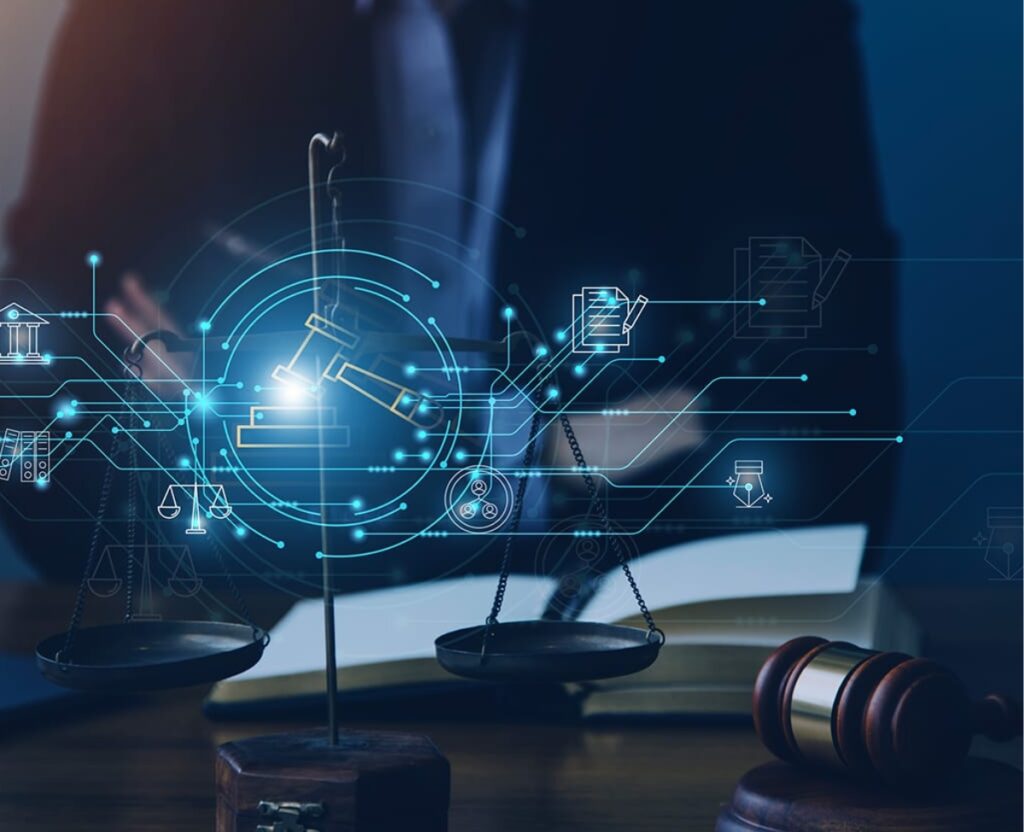
Technology lawyers play a crucial role at the intersection of law and innovation. They help businesses and individuals manage legal issues related to technology—like data protection, software rights, and compliance. These professionals also ensure that emerging technologies adhere to ethical and regulatory standards. With their unique expertise, they protect organizations from risks while enabling safe growth in a tech-focused economy.
Studies reveal how essential these lawyers are in addressing the challenges of fast-evolving technologies. Research highlights their importance in safeguarding intellectual property, guiding cybersecurity measures, and ensuring data privacy laws are met. Analysts point out that businesses rely heavily on their advice to navigate shifting regulations and handle disputes effectively. This growing reliance demonstrates their impact across multiple industries.
The demand for skilled technology lawyers is surging as innovations reshape industries. They are not just solving legal problems—they are shaping the future of ethical tech use. Companies trust them to shield operations while driving digital progress. For readers eager to understand modern challenges, technology lawyers are the unseen architects crafting a safer digital world.
Defining the Role of a Technology Lawyer
A technology lawyer advises businesses and individuals on legal matters related to technology usage, software development, intellectual property, compliance, and data protection. While all lawyers deal with regulatory frameworks, technology lawyers require additional expertise in topics like artificial intelligence (AI), cybersecurity, blockchain, and digital contracts. Their work often involves:
- Drafting and negotiating technology licensing agreements.
- Building compliance strategies for data privacy laws such as the General Data Protection Regulation (GDPR) or California Consumer Privacy Act (CCPA).
- Managing intellectual property (IP) concerns, including patents, copyrights, and trademarks for software and hardware.
- Advising on regulatory scrutiny involving AI tools, fintech platforms, or e-commerce businesses.
- Mediating disputes over domain ownership, data breaches, or technology contracts.
This versatility makes technology lawyers indispensable in today’s economy, where almost every organization depends on technology to function.

Addressing the Unique Challenges of Technology Law
Technology law exists in a state of constant flux. Unlike traditional law topics, such as property or contract law, which evolve at a slower pace, the rules surrounding technology can change overnight. Technology lawyers must keep up with innovations and anticipate how legislative bodies and regulatory agencies might address them.
Regulating Emerging Technologies
Emerging technologies like AI, machine learning, and quantum computing create opportunities but also legal ambiguities. For example, if an autonomous vehicle causes a traffic accident, who should bear liability? Similarly, how should intellectual property laws address AI-generated art or content? Technology lawyers unravel these ambiguities to help businesses innovate while staying compliant. Their expertise becomes crucial in guiding policy development and ethical technology usage.
Data Protection and Privacy Concerns
Data breaches and unauthorized access to sensitive information have skyrocketed alongside digital expansion. Technology lawyers play a pivotal role in advising businesses on how to protect user information and comply with regulations like GDPR and CCPA. Rather than seeing these regulations as mere hurdles, savvy lawyers position them as opportunities to boost user trust and create robust digital ecosystems.
Intellectual Property in the Digital Age
Technology is inherently innovative, posing unique intellectual property challenges. Businesses developing software applications, hardware prototypes, or digital platforms rely on technology lawyers to secure patents, trademarks, or copyrights across global jurisdictions. Additionally, these lawyers often handle disputes involving unauthorized usage or intellectual property theft.
Cybersecurity and Compliance
Cybersecurity forms the backbone of modern technology law. Whether it’s advising on security protocols or helping businesses respond to breaches, technology lawyers must operate with technical precision. They often collaborate with IT teams to establish legal safeguards against potential vulnerabilities, ensuring the company is prepared to handle cyberattacks and mitigate repercussions effectively.
Key Stakeholders Technology Lawyers Serve
A defining feature of technology lawyers is their ability to serve vastly different types of clients. Each group presents its challenges and priorities, demanding tailored legal strategies.
Entrepreneurs and Startups
Entrepreneurs breaking into cutting-edge fields such as fintech or digital health require expert legal counsel. Technology lawyers guide them through complexities like securing venture capital, ensuring compliance from day one, and protecting intellectual assets. Additionally, they assist these businesses with navigating contractual obligations without sacrificing flexibility—critical for scaling successfully.
Multinational Corporations
Large corporations often rely on in-house counsel or specialized technology lawyers to handle vast ecosystems of legal obligations. From refining e-commerce operations to managing sprawling IP portfolios, these companies need lawyers who can assess risk, streamline processes, and deliver cost-effective, scalable solutions.
Individual Innovators
Independent developers or smaller-scale innovators look to technology lawyers to ensure their ideas and products are protected. Services like drafting non-disclosure agreements (NDAs) or establishing technology escrow can define whether a solo tech venture succeeds or fails.
Government and Regulatory Agencies
Governments often employ technology lawyers to draft and enforce regulations that encourage innovation while safeguarding public interests. These roles become pivotal in areas like national cybersecurity policy or AI ethical standards.
Skills that Set Technology Lawyers Apart
Technology lawyers are distinguished by their expertise and their ability to integrate legal knowledge with industry-specific insights. Their success relies on mastering specific technical and interpersonal abilities.
Understanding Cross-Disciplinary Domains
Technology lawyers bridge gaps between engineers, business leaders, and policymakers. Their knowledge of both technical and regulatory landscapes enables them to grasp complex challenges that non-technical lawyers might struggle to address.
Adaptability and Quick Learning
Whether it’s cryptocurrency regulation or autonomous vehicle compliance, learning agility is critical.
Ethical Decision-Making
With great technological power often comes ethical dilemmas. Lawyers operating in this space frequently advise on sensitive matters—such as balancing user privacy with data analytics goals or implementing AI solutions responsibly. Ethical competence is non-negotiable.
Strong Communication Skills
Technology laws often seem overwhelming to lay audiences or entry-level employees. Lawyers must simplify technical jargon and distill its meaning into actionable advice.
Essential Tools for Technology Lawyers
Staying current requires not only expertise but also the right tools. Key technologies used by tech lawyers include:
- Legal Research Platforms: AI-powered tools like Westlaw Edge for quick legal references and updated case law analysis.
- Document Automation Software: Solutions like Clio allow lawyers to generate customized contracts swiftly.
- Cybersecurity Frameworks: Proactive identification of weaknesses through collaboration with industry-standard frameworks such as ISO 27001.
- Communication Tools: Secure client portals and CRM tools build trust and improve transparency between lawyers and their clients.
Why the Future Needs More Technology Lawyers
Technology continues to evolve at a breakneck pace, amplifying risks and regulatory responsibilities. As businesses adopt AI, expand into virtual reality, or deal with quantum computing, lawyers specializing in technology will move from helpful to indispensable. Beyond solving business challenges, these professionals will help shape the policies that govern cutting-edge industries. Thoughtful input from legal experts ensures that ethics and inclusivity take precedence as new technologies emerge, preventing societal harms.
Conclusion
Technology lawyers are no longer optional specialists—they are fundamental to maintaining order and trust in a hyperconnected era. Their roles extend beyond risk mitigation; they empower innovation. Moving forward, their influence will expand, shaping industries, refining policies, and safeguarding trust. For organizations or nations that value progress, the future belongs to those who invest in this indispensable legal discipline. Technology lawyers stand not at the periphery but at the heart of innovation. Their intelligence, ethics, and adaptability remain keys to shaping a responsible technological future.







ig9n4b